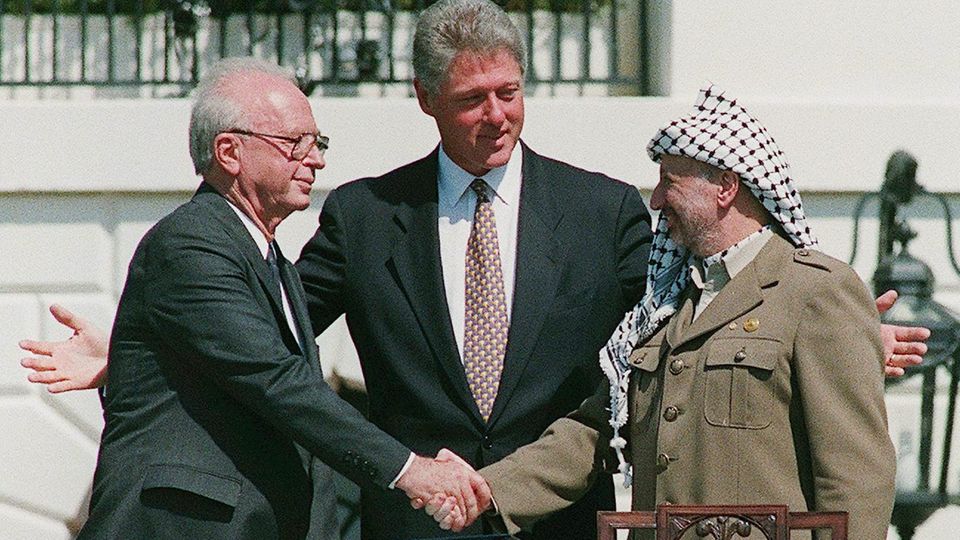Norway played an important role in the peace process between Israel and the Palestinians in the 1990s. The country is also playing a role as a mediator in the current war against Hamas. But success does not depend on Oslo.
They were milestones in the Middle East peace process: the Oslo Accords. They should pave the way for the two-state solution and thus also for a state of Palestine. The image of the handshake between Israeli Prime Minister Yitzhak Rabin and Palestinian representative Yasser Arafat went around the world.

Izchak Rabin (l), then Prime Minister of Israel, and Yasser Arafat (r), then Chairman of the Palestine Liberation Organization (PLO), shake hands in the presence of Bill Clinton, then US President. It is a success that also came about through Norway’s mediation
© Avi Ohayon/Israeli Government Pr/EPA / DPA
In the early 1990s, the Israeli and Palestinian sides met in the Norwegian capital for secret talks that culminated in the Oslo I Agreement in 1993. It included mutual recognition between Israel and the Palestinian organization PLO and allowed for limited Palestinian self-rule. Two years later, Oslo II was passed, which envisaged Israel’s withdrawal from the West Bank.
Norway as a peacemaker
Around 30 years later, Norway is again signaling that it could take on a mediating role between the terrorist organization Hamas and Israel. A few days after the attacks on Israel, Norwegian Prime Minister Jonas Gahr Støre said: “We have built up a wide network of contacts over many years and can talk to many people. In a situation like this, talking to both sides is an option that we “want to use”. They also want to talk to Hamas “if it is necessary.”

